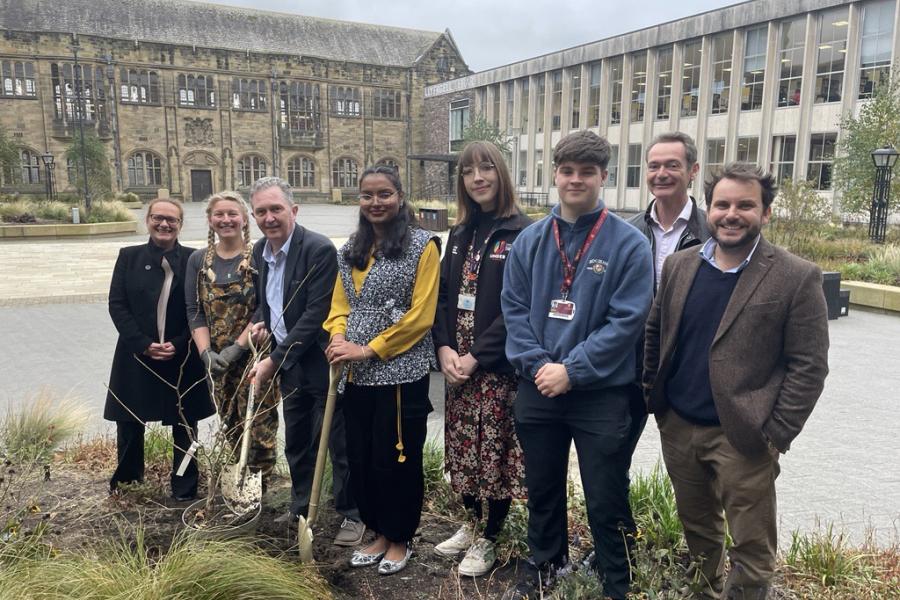In a move aimed at supporting global reforestation efforts and promoting sustainable practices, Bangor University has switched to Ecosia as its default search engine. The move, which went live today, Friday, 1 November, follows a student suggestion during the University’s launch of the 25by25 campaign.
Initial research on the subject, led by Dr Edward T Jones at the Bangor Business School, was conducted followed by consultation with staff and students, which was overwhelmingly positive.
Ecosia, is the world’s largest not-for-profit search engine, dedicating 100% of its profits to climate action, primarily through reforestation projects worldwide. To mark the occasion a Hamamelis Intermedia Firecracker tree was planted in the Outer Quad.

As of today, Ecosia has planted more than 218 million trees in over 35 countries. By using Ecosia, each search conducted on University devices will help contribute to Ecosia’s mission of restoring biodiversity hotspots and combating deforestation.
Professor Oliver Turnbull, Deputy Vice-Chancellor and lead for Sustainability at Bangor University, stated, “This partnership with Ecosia aligns perfectly with our sustainability goals. Ecosia’s track record of responsible environmental action made it an ideal choice as we strive to make a positive impact not only locally but globally. We are thrilled to support an organisation that prioritises the planet.”
Professor Christian Dunn, Associate Pro-Vice-Chancellor for Sustainability, added, “I’m looking forward to seeing the University’s Ecosia dashboard which will show us just how many trees we’ve all helped plant from our office chairs. Switching to Ecosia is a small step for us, but with big results for the world.”
Fred Henderson, User Success Manager at Ecosia, said, “It’s wonderful to see Bangor University joining the growing number of institutions committed to using Ecosia. By making Ecosia the default search engine, Bangor University is demonstrating a significant commitment to environmental responsibility and inspiring others in the academic sector.”
This initiative reflects the University’s ongoing commitment to sustainability and reinforces its role as a leader in environmental responsibility within the academic community.




